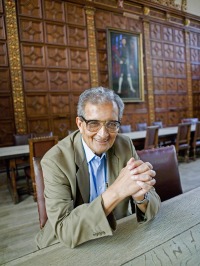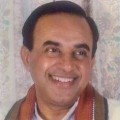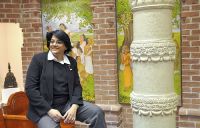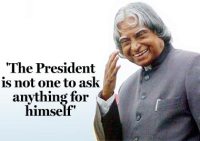In a brilliant article on Bhagwati versus Sen published in Mint on 10 July, Niranjan Rajadhyaksha unwittingly took one step in the wrong direction in arguing that I could be the economist for Narendra Modi and my good friend Amartya Sen for Rahul Gandhi. Let me explain.
First, I have argued (with Arvind Panagariya) that Gujarat has produced growth and also that the change in its social indicators is remarkable, whereas Kerala is by no means the great model of development that Sen has long extolled for its “redistribution” under the communist regimes, and that Bangladesh to which Sen has now turned is also no paragon of virtue. I refer the reader to the new Bhagwati-Panagariya book, referenced below, where Sen’s assertions are pretty well demolished with evidence and argumentation. Amusingly, now he has even turned in The New York Times to China, which he used to excoriate us for being “obsessed with”: but that will not survive scrutiny either.
I also believe that the Gujarat template is ideal: its people believe in accumulating wealth but they believe also in using it, not for self-indulgence but for social good. This comes from the Vaishnav and Jain traditions that Gandhiji drew upon as well. The best “foreign” model of this type is exemplified by my most distinguished Columbia University colleague, Simon Schama, who wrote about the Dutch burghers who had similar values and lifestyles. It is also a great model for India, I believe.
Second, the notion that I am for growth per se whereas Sen is instead for poverty reduction and “social progress” reflects ignorance. Not merely did I spend my early 1960s in the Planning Commission, working on poverty reduction, but Sen showed at the time no particular concern for that issue. Besides, in the early 1970s, when gender issues were not fashionable, I produced an influential paper in 1973 in the Oxford journal World Development, showing how female children were being neglected in education and nutrition. Padma Desai and I also worked through several Indian elections to show how women candidates were few and far between, and that the Left-wing parties were surprisingly not better at fielding female candidates. I also gave the Rajiv Gandhi Memorial Lecture on the importance of democracy (a theme that is integrated more pointedly into the analysis of Indian development in the Bhagwati-Panagariya book).
Sen has caught up with such issues only later and is sometimes described as the Mother Teresa of economics. But she did a lot of good at the micro level, whereas (as I discuss below) his policy prescriptions have done huge damage instead. Let us not insult Mother Teresa.
Let me then focus on the issue of growth and redistribution in relation to India’s policy framework. As Panagariya and I have documented at great length in our book—India’s Tryst with Destiny, from Collins in December, and retitled Why Growth Matters in the US/international edition from PublicAffairs in April—significant redistribution in India could not have preceded growth as there were too few rich and too many poor. Growth, therefore, would not merely pull people above the poverty line but it would have the added beneficial effect that it would generate revenues which could then be used to undertake redistribution. I had noted these two points in my Vikram Sarabhai Memorial Lecture on poverty and public policy in Ahmedabad almost 25 years ago, also writing that added incomes earned by the poor need not necessarily translate into improved nutrition, for example, and that education was necessary to nudge people into making good choices.
Sen, with no evidence and with only wishful thinking to support his assertions, claims instead, and is at least construed by many to be arguing, that redistribution should precede growth whereas I (and Panagariya) believe that it is the other way around. As we clarify the matter again, for the umpteenth time, in our Letter to the Editor of The Economist in the 10 July issue, Sen puts the cart before the horse; and the cart is a dilapidated jalopy!
(Sen, in a reply last week in a letter to The Economist, takes me to task for “unilateral” attacks on him. This is strange. Intellectuals write for the public as John Maynard Keynes did, instead of seeking prior, bilateral agreement! We act individually according to our lights; we expect informed debates to settle the differences. He also claims that he embraces growth. But in our book, I and Panagariya quote him extensively to show that this is pro forma, at best, much like an anti-Semite would claim that Jews are among his best friends! To take just a single example out of the many we have recorded, he has attacked the Indian press for concentrating on issues such as foreign direct investment, which is growth-enhancing, and neglecting coverage of the poor.)
Sen is not simply wrong; he also poses a serious danger to economic policy in India. Indeed, having opposed implicitly or explicitly the liberal reforms that, starting vigorously in 1991, transformed the Indian economy and pulled it out of its abysmal growth rate, and pulled millions above the poverty line, Sen had suffered the misfortune of having seen Indian policy and economy pass him by. Now, he seeks to resurrect himself by endorsing programmes such as the National Food Security Bill, or NFSB, (which, of course, predates Sen’s endorsement by a long shot) which promise substantial “redistribution”.
But, for reasons discussed by many (such as Panagariya and Arvind Subramanian among them), therein lies, not glory, but yet another disaster that will make Sen the only well-known economist to have inflicted damage twice on Indian policy and therewith on poverty reduction: first, by supporting the counterproductive policies that undermined growth prior to the 1991 reforms and now, by supporting populist measures such as NFSB that would deal a blow yet again against the poor (as I explain below). The road to hell is indeed paved with good intentions.
There are four additional points that the reader should keep in mind. First, Sen seems to think that I am bursting to debate him. Frankly, I am not. It was N.P. Ullekh of The Economic Times who asked me why Sen would not debate with me the differences we have. So, I replied that he should ask Sen that, not me. Now Sen says that I want to debate him but he will not debate me. So much, of course, from Sen who has conned foreigners into believing that Indians believe in debates that lead to an informed democracy. As it happens, Indians traditionally are more into falling at the feet of great figures like Sen and me. Alternatively, they indulge in personal attacks like musicians who describe singers from other gharanas as “dhobis”! As I once remarked jokingly, we Indians are so ingenious that we multiply by dividing!
Sen has so far dodged any invitation to argue face to face with those who disagree with his assertions. He indirectly responded to my Lok Sabha speech some time ago, which may have annoyed him as it had an unprecedented response in the country, unlike his own, by telling the Financial Times that concern with growth was “stupid”. On an NDTV panel on NFSB, where Panagariya unexpectedly turned up to oppose him, he lost his cool and said that Panagariya could not speak on NFSB issues as he lived in New York, to which Panagariya calmly responded that Sen lived in Cambridge! He was flooded with emails saying he was a hero to have brought Sen down a peg.
It is this tendency to degenerate into personal attacks as against debates on issues that we need to avoid. On the same programme, Sen’s friend, the activist Jean Drèze, produced some toy animals and told Panagariya that he was a unicorn! He is lucky that Panagariya did not respond bitingly and say that Drèze should have described himself as the Nandi bull, with his senior colleague Sen as Lord Shiva who had hurt masses of India’s poor. But is this what Sen wants us to do rather than debate issues in a professional way?
Second, it is simply untrue that my policy prescriptions would be unacceptable to Rahul Gandhi or, in fact, any political leader who cares for social progress and poverty amelioration. If they are going to spend money on health, education, etc., they will have to find the moneys to finance them. Uncle Sam has no money to give; and God is asleep at the switch and not inclined to drop manna from heaven. Unless they want to hear Sen’s soothing but irresponsible reassurances on behalf of populism, they will have no option except to read and implement the reform programmes that we have advocated in the Bhagwati-Panagariya book for both intensifying and broadening the growth-inducing reforms we call track I reforms and also cleaning out and improving the revenue-spending programmes for health, education and public distribution system (PDS) that we call track II reforms.
Third, Sen keeps describing India’s shortfalls on social indicators, as if Indian planners and intellectuals were blind to them. The real issue is whether his prescriptions will ameliorate these shortfalls or accentuate them. Here, he fails us. And his flawed exaggerations of India’s failures on nutrition, successfully challenged by Panagariya, also leave him as a misguided analyst.
Finally , the United Progressive Alliance government is now poised to damage the economy, and to harm the poor as in the pre-1991-reforms years, because its near-paralysis on track I reforms has meant that revenue growth has slowed too, making it more difficult to finance the track II reforms on health, education and PDS expansion for the poor. At the same time, owing to electoral pressures and with the populist rationales provided by the likes of Sen, the expenditures on such track II policies are set to go up this year. So, we have a disjunction between slowing revenue growth and rising track II expenditures. This will mean inflation for sure: and this will definitely hurt the poor (many econometric studies have shown that the poor are hurt by inflation) while likely leading to a return of intervention in the food market, etc., that will likely undermine the earlier track I reforms in turn.
Surely, it is time for all politicians, especially the progressive ones regardless of which political party they belong to, to therefore finally stand up and say: enough is enough! May I urge at least the Prime Minister, a close friend whom I have known intimately for almost 60 years from our Cambridge days and is a proud architect of the 1991 track I reforms that I among others advocated for years and which have now turned us around, to finally abandon his silence and say to Sen and his friends publicly: “You are wrong”?
Jagdish Bhagwati is university professor of law and economics at Columbia University.
Posted on July 1, 2012 by IS
![Sandeep Icon Sandeep Icon]() “Amartya Sen’s lengthy chronicle of skulduggery was to simply show why A=Arafat and A=Amartya. Like the dead Palestinian terrorist state-head who rewarded his loyal minions with power and position, Amartya Sen has used his Nobel Prize as both an academic and political pulpit to further both his economic and political ends throwing shame, fair play, ethics, and even basic decency to the winds.” – Sandeep
“Amartya Sen’s lengthy chronicle of skulduggery was to simply show why A=Arafat and A=Amartya. Like the dead Palestinian terrorist state-head who rewarded his loyal minions with power and position, Amartya Sen has used his Nobel Prize as both an academic and political pulpit to further both his economic and political ends throwing shame, fair play, ethics, and even basic decency to the winds.” – Sandeep
![Prof. Amartya Sen Amartya Sen]() The Nobel Prize lost any trace of respectability or merit ages ago. Apart from a few branches of pure science, the Nobel is simply a fancy title that converts obscure and spurious academics and nonentities into overnight millionaires and Universal Experts whose only strength lies in their ability to kiss the bottom that gets them the bounties. Of course, the Nobel isn’t restricted to just that: it includes a whole gamut of such phonies belonging to various categories—from politicians to terrorists.
The Nobel Prize lost any trace of respectability or merit ages ago. Apart from a few branches of pure science, the Nobel is simply a fancy title that converts obscure and spurious academics and nonentities into overnight millionaires and Universal Experts whose only strength lies in their ability to kiss the bottom that gets them the bounties. Of course, the Nobel isn’t restricted to just that: it includes a whole gamut of such phonies belonging to various categories—from politicians to terrorists.Name some famous Nobel-winning names that begin with A. Two names immediately come to mind: Arafat and Amartya. The former was a gold-standard terrorist who won the Nobel for Peace, and the latter was a gold-standard academic obscurity who won the Nobel for Economics. Arafat asserted his terrorism in both word and deed and thus earns our respect because he was at least honest about his avowed intent to destroy Israel using sheer terror.
Here’s where Amartya poses a problem. He’s so versatile that you never know what to make of him: an agnostic, an arguer, an orator, an intellectual, an identity-explorer, an economist, a Buddhist, a Communist, or simply a species from Madagascar that has a projectile tongue and changes its skin colour on demand. His record is both impressive and scary. He won the Nobel for Economics. He’s always on tour lecturing about everything other than economics. He claims to also be a Sanskritist. He speaks glowingly about China’s cultural revolution. He writes books about argumentative Indians. He explores the nature of identities. He heads a panel constituted to revive a prestigious ancient Indian university.
![Yasser Arafat Yasser Arafat]() Given that he’s such a multi-faceted incomprehensibility, I’ll settle for the last: Amartya Sen is best defined as a species from Madagascar that has a projectile tongue and changes its skin colour on demand. That’s a biologist’s language. In the layman’s tongue, that species is called a Chameleon.
Given that he’s such a multi-faceted incomprehensibility, I’ll settle for the last: Amartya Sen is best defined as a species from Madagascar that has a projectile tongue and changes its skin colour on demand. That’s a biologist’s language. In the layman’s tongue, that species is called a Chameleon.Amartya Sen is a classic example of mindless and uncritical celebrity worship in the academia, which naturally spills over to the media and public consciousness. This itself is an ugly by-product of a larger phenomenon. Over the years, someone who receives significant recognition in any field suddenly becomes The Expert on Everything. The Nobel being the most significant recognition has thus become theonly qualification for such people who instantly become Mr/Ms Know-it-All and attain a Divine Right to indulge in unqualified snobbery.
Which brings us to the question nobody ever asks: what exactly is Amartya Sen’s distinction apart from writing reams of stuff on economics, which nobody reads much less understands? Nobody is grudging his Nobel. However, there are some vulgar mischief-mongers who unfairly sully the fair professor’s name by calling him Mister Rothschild and spread atrocious rumours that the Rothschild name had a lot to do with Dr. Sen getting the Nobel. But let’s not hit below the belt. However, this question is fundamental and necessary because Sen is projected as an expert on everything from ancient India to Hinduism to Sanskrit to Islam to Buddhism to society to philosophy to foreign policy, and is taken seriously. What exactly is his qualification and competence to head the ambitious and well-intentioned project of setting up the Nalanda International University, whose aim is to revive the glory of the original Nalanda? What’s your bet that he’d still be languishing in obscurity at Cambridge instead of doing what he’s doing now but for the Nobel?
It’s precisely because these questions aren’t asked that Sen gets away with—apart from terming Mao’s genocide of his own people as making “great strides”—being a casual apologist for Islamic terror.
… that’s quite different from using religious divisions for purpose of a sectarian division, and for purpose of perpetrating violence on people who do not share the religion but have another religion.
But that is not confined to Islamic – what you now call Islamic – terrorism. That is a very small group of people of the Muslim faith who happen to take a particular view about how to advance it; I think the vast majority of Muslims don’t take that view … the “global war on terror” is not our language, of course. When we refer to it, we call it the so-called “war on terror”
And in 2006 this self-confessed agnostic strongly urged Tony Blair to implement a policy, which calls for the takeover of Britain’s schools by the Church so the kind padres can catch ‘em young and begin to enforce strict mind control. In his own words,
Christian schools “are perfectly acceptable” but other faith schools “are a big mistake and should be scrapped if the Government wants to encourage a unifying British identity … Christian schools have evolved and often provide a much more tolerant atmosphere than a purely religious school would. A lot of people in the Middle East or India or elsewhere have been educated in Christian schools. A lot of my friends came from St Xavier’s in Kolkata — I don’t think they were indoctrinated particularly in Christianity.”
![St. Xavier's College, Kolkata St. Xavier's College, Kolkata]() Which is another reason we need to be very wary and scared of Amartya Sen’s creed. His staggering hypocrisy is also dangerous: here’s an agnostic who openly,emphatically endorses religious schools on the assumption that such schools would promote a “unifying” (sic)” national (British) identity. As “evidence,” he claims that Christian schools provide “tolerant atmosphere than a purely religious school.” One wonders whether Sen even realizes the absurdity of his self-contradictory statement — if it’s a Christian school, it is by definition, a religious school unless you’re talking about an out-and-out religious seminary where only hardcore Christianity is taught. Sen’s hollow and fraudulent claim that Indian Christian schools provide an atmosphere of tolerance shows that a Nobel entitles you to lie shamelessly and still smile with confidence. This quick laundry list shows the delightfully tolerant atmosphere of Indian Christian schools:
Which is another reason we need to be very wary and scared of Amartya Sen’s creed. His staggering hypocrisy is also dangerous: here’s an agnostic who openly,emphatically endorses religious schools on the assumption that such schools would promote a “unifying” (sic)” national (British) identity. As “evidence,” he claims that Christian schools provide “tolerant atmosphere than a purely religious school.” One wonders whether Sen even realizes the absurdity of his self-contradictory statement — if it’s a Christian school, it is by definition, a religious school unless you’re talking about an out-and-out religious seminary where only hardcore Christianity is taught. Sen’s hollow and fraudulent claim that Indian Christian schools provide an atmosphere of tolerance shows that a Nobel entitles you to lie shamelessly and still smile with confidence. This quick laundry list shows the delightfully tolerant atmosphere of Indian Christian schools:- Making it almost impossible for non-Christians to get admission unless they convert or belong to the Rich and the Famous club in society
- Showing the Hindu students their place by employing various methods (see the subsequent bulleted points)
- Prohibiting Hindu girls from wearing any adornment or mark that the school regards as Hindu on the school campus
- Enforcing Bible studies in the guise of Moral Science, a compulsory subject mandated by almost all state boards
- Insisting on speaking in English—I know a friend who was fined repeatedly in school for speaking in Kannada or Hindi.
- Derogating the Hindu religion—and India as a country—in the guise of admonishing an errant student—I’m both an eyewitness and recipient of “bloody Indian!” and “bloody Heathen!” admonishments.
- Glossy pamphlets stuck on the notice board describing the kindly exploits of this or that Reverend Eminence’s latest success in spreading the Love of God to remote villages, which were languishing under the Heathen religion.
![St. Augustine's High School: Bible reading a must for all students. St. Augustine's High School]() Abundant tolerance no?
Abundant tolerance no?If anything, Amartya Sen is one of the most eminent instances of what Christian education does to Hindus (or followers of “Pagan” religions). The mind control that Christian schools indulge in is as incredible as it is multi-pronged. Years upon years of sustained Christian brainwashing culminates in drilling a feeling of unshakeable, lifelong shame into you. The result: the “Pagan” student ends up hating his religion, his country, and worse, himself, and the only way of overcoming this shame is by harping abuse on precisely these things. This is one of the explanations why Amartya Sen is Amartya Sen. Needless, you can find a million mini-Amartya Sens-in-spirit all around you whose worldview is primarily, immutably shaped and therefore distorted, by Christianity. Like an undiluted Christian fanatic, even those who claim to be agnostics, atheists, and religion-haters refuse to admit even the possibilitythat an alternate worldview based on different but sound principles can exist.
Even if we grant some lease to Sen’s open call for Church brainwashing of education on the grounds that he was trying to bootlick the British by out-Britishing them, he still sounds insincere. Let’s transport Amartya Sen to India and apply his words in the Indian context.
Hindu schools “are perfectly acceptable” but other faith schools “are a big mistake and should be scrapped if the Government wants to encourage a unifying Indian identity … Hindu schools have evolved and often provide a much more tolerant atmosphere than a purely religious school would. A lot of people in … [USA or Europe] or elsewhere have been educated in Hinduschools. A lot of my friends came from Narendrapur Ramkrishna Mission School in Kolkata — I don’t think they were indoctrinated particularly in Hinduism.”
What’s your wager that he would he make a speech of this sort? Actually, he won’tneed to make such a speech because he’s already preempted this requirement by asserting that a “lot of my friends came from St Xavier’s in Kolkata — I don’t think they were indoctrinated particularly in Christianity.”
![Dr. Subramanian Swamy Subramanian Swamy]() However, hypocrisy is the least of Sen’s long list of sins.
However, hypocrisy is the least of Sen’s long list of sins.Amartya Sen is also spineless. This powerful Harvard Professor who has wide contacts in the world’s political firmament preferred to remain mute when he should’ve actually used his position to uphold free speech. This selfsame Harvard university dumped Subramanian Swamy because the powerful Academic Mullahs in Harvard’s administration were pissed off with Swamy’s DNA article, which had angered the bloodthirsty Oil Oligarchs of the Middle East who now fund the Madrassa on the Charles. ![Prof. Gopa Sabharwal Prof. Gopa Sabharwal]() Of late, Sen has also added mooching and opacity to his list of sins. His adventures as the head of the Nalanda University revival project is one unending saga of elaborate hoax at taxpayer expense. A measure of Amartya Sen’s dangerous power is how he managed to ensure that India’s former president APJ Abdul Kalam resigned from the Nalanda Mentor Group. Not content, he also made sure that Kalam’s resignation remained a secret as long as possible. In a classic case of the tenant usurping the owner’s property, the Nalanda project, which was Kalam brainchild, has now been hijacked by the likes of Amartya Sen, who has mooched the Indian taxpayers of a gargantuan 17100000 Rupees till Feb 2009 in travel and accommodation bills alone, and he has shown zero
Of late, Sen has also added mooching and opacity to his list of sins. His adventures as the head of the Nalanda University revival project is one unending saga of elaborate hoax at taxpayer expense. A measure of Amartya Sen’s dangerous power is how he managed to ensure that India’s former president APJ Abdul Kalam resigned from the Nalanda Mentor Group. Not content, he also made sure that Kalam’s resignation remained a secret as long as possible. In a classic case of the tenant usurping the owner’s property, the Nalanda project, which was Kalam brainchild, has now been hijacked by the likes of Amartya Sen, who has mooched the Indian taxpayers of a gargantuan 17100000 Rupees till Feb 2009 in travel and accommodation bills alone, and he has shown zero ![Former President Abdul Kalam Abdul Kalam]() progress in return for spending all that money. Actually, let’s correct that: the only progress he has shown so far is writing a letter to Pranab Mukherjee (who was then the External Affairs Minister) to smuggle Sen’s favourite minion, Gopa Sabharwal as the Vice Chancellor. This letter, written on Sen’s Harvard Letterhead, was the only “due process” that Sen followed to get this woman, who’s neither qualified nor competent, to be a Vice Chancellor: she was merely a reader in Lady Shri Ram College. Ever since, Gopa has been drawing a princely salary of Rupees 5,06,513 per month.
progress in return for spending all that money. Actually, let’s correct that: the only progress he has shown so far is writing a letter to Pranab Mukherjee (who was then the External Affairs Minister) to smuggle Sen’s favourite minion, Gopa Sabharwal as the Vice Chancellor. This letter, written on Sen’s Harvard Letterhead, was the only “due process” that Sen followed to get this woman, who’s neither qualified nor competent, to be a Vice Chancellor: she was merely a reader in Lady Shri Ram College. Ever since, Gopa has been drawing a princely salary of Rupees 5,06,513 per month.Amartya Sen’s lengthy chronicle of skulduggery was to simply show why A=Arafat and A=Amartya. Like the dead Palestinian terrorist state-head who rewarded his loyal minions with power and position, Amartya Sen has used his Nobel Prize as both an academic and political pulpit to further both his economic and political ends throwing shame, fair play, ethics, and even basic decency to the winds.
Every platform or organization that has engaged and plans to engage him stands equally guilty of partaking in his sins. – The Rediscovery of India, 29 June 2012 Filed under: christian, conversion, economics, free speech, geopolitics, india, indian economy, marxism, nobel prize, scholarship Tagged: | amartya sen, christian schools, conversion, corruption, economist, gopa sabharwal, harvard university,human rights, marxist, nalanda university, nobel prize, politics, religion, subramanian swamy  Jul 23 2013
Jul 23 2013







I bet you have never heard of them either.